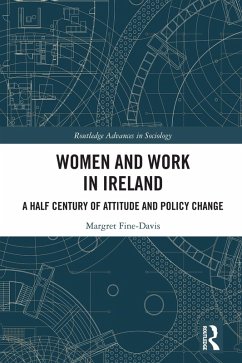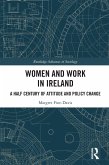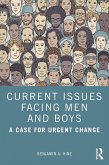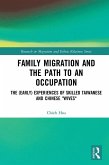Dieser Download kann aus rechtlichen Gründen nur mit Rechnungsadresse in A, B, BG, CY, CZ, D, DK, EW, E, FIN, F, GR, HR, H, IRL, I, LT, L, LR, M, NL, PL, P, R, S, SLO, SK ausgeliefert werden.
Faye J. Crosby, Distinguished Professor of Psychology Emerita, University of California, Santa Cruz
"In this fascinating book, M. Fine-Davis, a top scholar in the field of European social policies, brilliantly demonstrates how and why women's roles and status have so dramatically been changing in Ireland from the 1970s onwards. She adopts a systemic approach and underlines the catalytic effect of EU membership and the key role played by the women's movement. Based on a rich set of data, this book also provides a rigorous analysis of how social attitudes, trends in women's labour force participation and developing social policy intersected. In the end, a must-read book for academics and their students working in these fields."
Jeanne Fagnani, Emeritus Senior Research Fellow, National Centre for Scientific Research (CNRS-University of Paris 1, Sorbonne)
"This book tells a well-evidenced story of five decades of change in women's participation in the Irish labour force, from the 1970s onwards, and unpacks the ramifications for workplace discrimination, women's well-being, childcare and the division of labour. It provides a fascinating case study of how Irish social policy plays catch-up with changing behaviours and attitudes and demonstrates Ireland's ongoing, albeit uneven, progress in casting off the patriarchal legacy that limits equality for women and work."
Jacqueline Scott, Emerita Professor of Empirical Sociology, University of Cambridge
"Drawing on an extensive range of data, Margret Fine-Davis rigorously examines the evidence as regards continuities and changes in attitudes, patterns and policies around women and paid work in Ireland from the 1970s to the present day, locating these in an international context. There have been many welcome changes (not least the ending of the Marriage Bar in the 1970s). But this book also documents disquieting continuities including an inadequate child care system and substantial inequalities in the distribution of domestic tasks and child care: such continuities being very much in evidence in the COVID-19 situation."
Pat O'Connor, Professor Emeritus of Sociology and Social Policy, University of Limerick and Visiting Professor, Geary Institute, University College Dublin









